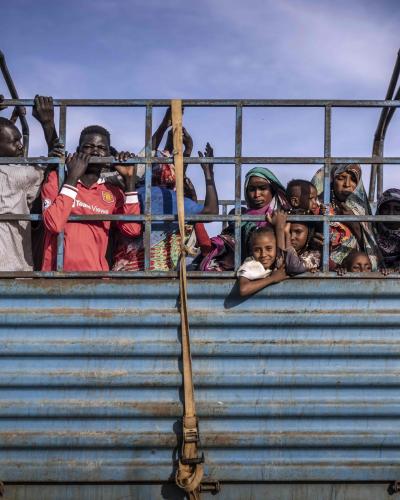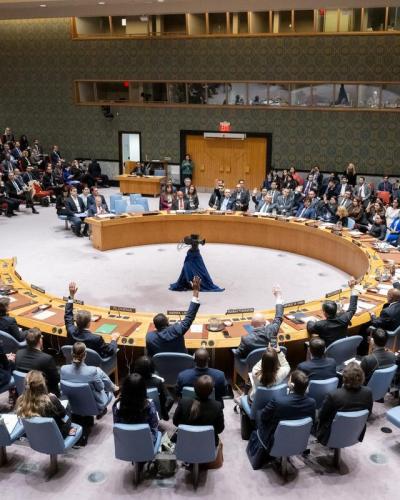On 17 April 2024, the UN Security Council held a debate on the role of young people in peace in the Mediterranean Basin. Switzerland considers that young people must be provided with an environment in which they can develop and contribute to social cohesion, the reduction of tensions and the economy.
"The fate of every nation depends on its youth", says an Arabic proverb - a language spoken by many young people in the Mediterranean region. Young people play an important role in peacebuilding. Many young men and women in the Mediterranean Basin have grown up with wars and conflicts, in Bosnia and Herzegovina, Syria and the Middle East, for example. In addition, there are other challenges such as a lack of economic prospects, barriers to political participation and the negative consequences of climate change, which are particularly felt in the Mediterranean region.
In their search for a better life, these young people are increasingly losing trust in state institutions. A lack of state protection, forced displacement or arbitrary arrests are factors that accelerate the loss of trust. Despite this, many young people in the Mediterranean countries are showing resilience and advocating for a better future. Their resilience and drive are key pillars for building sustainable peace – a priority for Switzerland in its mandate at the UN Security Council.
"The willingness of youth to engage is undeniable. What is needed is the willingness of political leaders to do their part," said Swiss UN Ambassador Pascale Baeriswyl in the Council. In its statement in New York, Switzerland emphasised the elements that are necessary for young people to participate effectively and develop their potential: Empowerment, appreciation and protection. Firstly, young people need sustainable economic prospects in order to promote trust and participation in politics. In Bosnia and Herzegovina, for example, Switzerland is supporting young people in developing professional skills as part of the "Youth for Change" project. Furthermore, legal and institutional barriers must be lifted so that young people's ideas for peace are heard. For the Security Council, for example, this could mean better implementing its resolutions on the youth, peace and security agenda with the help of an action plan. Finally, young people need offline and online platforms where they can express themselves without fear of reprisals. Hate speech and discrimination should give way to intercultural and intergenerational dialogue.




